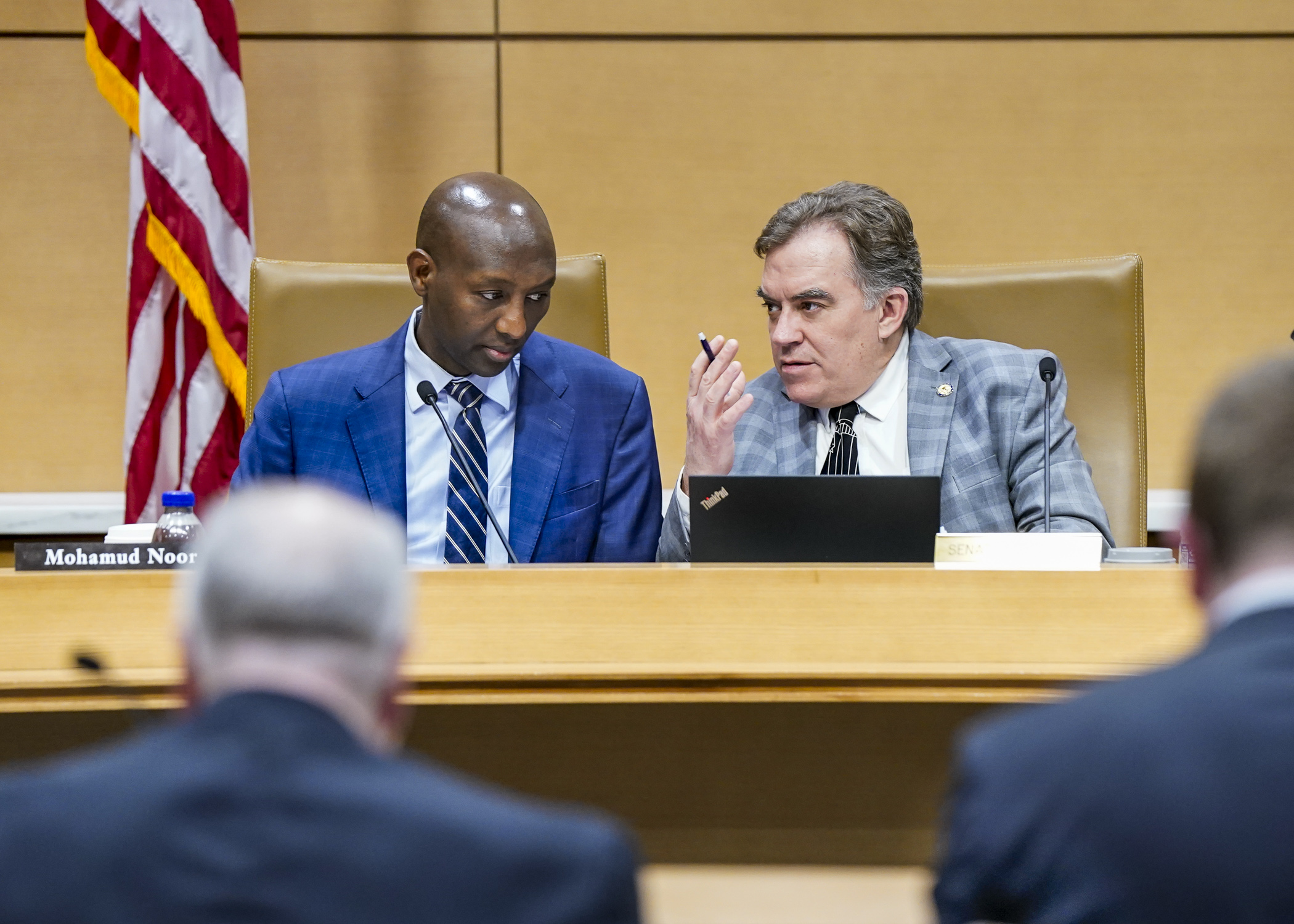Total spending, subminimum wage measure among items left to be sorted out as human services conferees begin work

The House wants to prohibit subminimum wages for people with disabilities, but the Senate doesn’t.
It is just one of many differences between the omnibus human services policy and finance packages. A conference committee for HF2847/SF2934* met for the first time Tuesday to begin reconciling differences between the House and Senate bills.
Co-chaired by Rep. Mohamud Noor (DFL-Mpls) and Sen. John Hoffman (DFL-Champlin), the conference committee plans to reconvene Wednesday to hear public testimony.
According to a spreadsheet, the House and Senate would both spend about $14.01 billion during the 2024-25 biennium, with the Senate higher by $300,000.
[MORE: Side-by-side language for article 1, 2, 3, 4, 5, 6, Senate 7, House 7, and 8]
The largest policy difference in the bills involves subminimum wage.
The House intends to bar home and community-based services providers from paying anyone with a disability less than minimum wage by Aug. 1, 2028. The Senate has no such counterpart.
Another key difference, the House would spend $264.02 million on elderly waiver rate increases. The Senate does not have this provision.
The Senate does, however, plan to fully phase in elderly waiver homemaker rates with an inflationary adjustment that would cost $28.55 million and increase the elderly waiver rate floor for disproportionate share facilities from $119 to $139, costing $10.02 million.
Moreover, one proposal the Senate has that the House lacks includes the Medical Assistance for Employed Persons with Disabilities asset limit elimination, costing $78.3 million.
Amongst other variances, the Senate seeks to raise the minimum daily operating payment rates for intermediate care facilities for persons with developmental disabilities to $300 while the House currently suggests a rate of $260.
[MORE: Look at the side-by-side summary for article 1, 2, 3, 4, 5, 6, Senate 7, House 7, and 8]
Other spending disparities include:
- safe recovery sites would receive $57.71 million from a House-only provision;
- a to-be-established workforce incentive grant program would obtain $41.26 million from the Senate and $35.66 million from the House ; and
- HIV/AIDS support services would get $24.2 million from the House and $10.1 million from the Senate.
Nursing homes differences
The Senate seeks to spend $74.09 million on nursing facilities rate increases that the House does not match. Meanwhile, the House plans to spend $20 million for nursing facility grants that the Senate would not provide.
Both bodies include an increase for a Red Wing nursing facility of $249,000. The Senate also seeks to offer grants or increase payment rates for certain additional facilities, such as the Boundary Waters Care Center in Ely and others in Fergus Falls and Chisholm.
Related Articles
Search Session Daily
Advanced Search OptionsPriority Dailies
Legislative leaders set 2026 committee deadlines
By Lisa Kaczke Legislative leaders on Tuesday officially set the timeline for getting bills through the committee process during the upcoming 2026 session.
Here are the three deadlines for...
Legislative leaders on Tuesday officially set the timeline for getting bills through the committee process during the upcoming 2026 session.
Here are the three deadlines for...